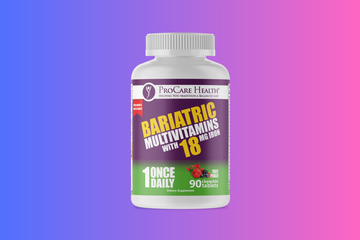by Anthony Benjamin on Oct 12, 2022


SIPS Weight Loss Surgery: Should You Consider It?
If you are interested in weight loss surgery, you should know there are options other than sleeve gastrectomy and gastric bypass surgery. Although it is a newer option, the stomach intestinal pylorus-sparing, or SIPS, weight loss surgery technique is a procedure you may want to consider.
The main difference between the SIPS and the DS surgeries is the presence of the pyloric valve as a functional part of the postsurgical anatomy. That means ingested food will still pass through the pylorus and into the small intestine after surgery. While the SIPS procedure is minimally invasive, it can take slightly longer than other types of bariatric surgery, lasting three to four hours.
SIPS Weight Loss Surgery: What is It?
Like the DS procedure, the SIPS surgery combines both restrictive and decreased absorption surgical components. It also combines the benefits of sleeve gastrectomy and gastric bypass surgery but provide greater weight loss results.
The SIPS procedure reduces the size of your stomach by creating a sleeve. Since the pyloric valve is retained, ingested food passes through the pylorus into the small intestine to help you lose weight.
What is the Pyloric Valve?
The pyloric valve refers to a ring of muscles between your stomach and the entrance to the small intestine. Preserving pyloric valve functioning provides your body with essential health benefits, including:
- It helps you absorb more nutrients from the foods you eat, which enables you to avoid nutritional deficiencies or problems.
- It helps you avoid unpleasant complications, such as severe diarrhea and ulcer formation, since the body is able to break down food during the digestion process.
- It helps you achieve better diabetes control by moving food through the digestive process in small batches instead of all at once.
- It controls the rate at which food leaves the stomach and enters the small intestine.
The SIPS Procedure: How Does It Work?
Before the procedure, you will be placed under general anesthesia and will not feel any sensation during the procedure.
To begin, the surgeon will make up to five small incisions in the abdomen. Through the incisions, he or she will place the camera and a special instrument inside of your abdomen to complete the surgery.
Next, the surgeon fills your abdomen with carbon dioxide gas to create more space between the organs. By doing this, he or she will be able to carry out the procedure safely.
During the first part of the procedure, the surgeon will remove the stretchy, upper portion of your stomach while also sealing nearby blood vessels to control any bleeding.
To create a stomach pouch, the remaining portions of the stomach will be joined together using surgical staples. The stomach pouch will be a fraction of the size of your normal stomach.
Then, the surgeon will create a bypass by cutting your intestines past the pyloric valve and reroute them to the last portion of your small intestine. He or she will complete the surgery by removing the camera and instruments and closing the incisions with stitches.
As a result, food will leave the stomach pouch and bypass part of your small intestine, which will lead to a reduction in your consumption and absorption of calories. It will also reduce your levels of ghrelin, the hormone that causes hunger.
What is the Success Rate of SIPS?
According to recent studies, the SIPS procedure provides more significant weight loss than standard sleeve gastrectomy and gastric bypass surgery. In fact, studies have shown that patients lost 80 to 90 percent of their excess weight after SIPS surgery.
However, it is worth noting that SIPS is a relatively new procedure, which means long-term data beyond five years is not readily available at this time.
The Advantages of SIPS Surgery
The SIPS procedure offers many advantages over other surgical weight loss treatments. It combines the benefits of both gastric bypass and gastric sleeve surgery. Additionally, it can result in greater weight loss than any other bariatric procedure.
Improved Weight Loss Results
With a slightly larger sleeve than other bariatric procedures, the SIPS weight loss surgery procedure results in enhanced weight loss results than gastric bypass or gastric sleeve surgery. Most patients experience a majority of their weight loss results within the first six months after surgery.
Lower Risk of Post-Surgery Complications
Most bariatric procedures result in post-surgery complications. Due to the steady release of food from the stomach to the small intestines, SIPS surgery can help you avoid common post-bariatric complications, including blocked intestines and severe diarrhea.
Safe for Weight Loss Surgery Patients
SIPS is a safe option for patients who have had gastric bypass or gastric sleeve surgery but regained some of their weight or they are not satisfied with their weight loss results.
If you have had gastric sleeve surgery, the procedure is simple. Since you already have the pouch, your surgeon will only have to create the bypass. Typically, the procedure takes 30 to 40 minutes.
Other Advantages
Aside from enhanced weight loss results, the SIPS weight loss surgery provides other benefits, including:
- Reduced ulcer formation and internal hernia (twisted bowel) rates
- Reduced dumping syndrome and problems associated with low blood sugar
- Improvement or remission of Type 2 diabetes
The Disadvantages of SIPS Surgery
There are disadvantages you should consider before deciding to have weight loss surgery. Before moving forward, you should consult your bariatric surgeon who can answer any questions or concerns you have regarding weight loss procedures.
Price
Unfortunately, SIPS surgery is still considered an experimental technique, which means it is not covered by most insurance companies. If you want to undergo a SIPS procedure, you may have to pay for your medical costs out-of-pocket.
Lack of Available Information
The SIPS procedure was developed in 2013, which means it is a relatively new medical procedure. Although many patients achieve weight loss in the first year after surgery, researchers have not been able to confirm whether patients maintain their weight loss over time.
Potential Risk of Nutritional Deficiencies
SIPS weight loss surgery is a malabsorptive procedure, which means it changes the way your digestive system absorbs food. Therefore, you will have a higher risk of developing nutritional deficiencies and require closer nutritional follow-up than people who undergo gastric sleeve or gastric bypass surgery.
Other Disadvantages
Apart from the price and lack of available information, other disadvantages may impact your decision to undergo SIPS surgery:
- An increase in bowel movements
- An increased risk of leaks because of the two staple lines: one for your sleeve and one for your bypass
Vitamin & Nutrient Needs After SIPS Weight Loss Surgery
With SIPS weight loss surgery, the dramatic decrease in food and the inability to absorb nutrients can lead to inadequate nutrition that is required for the body to heal and function. That’s why bariatric-specific vitamins, minerals, and added protein are crucial to getting healthy and staying that way.
Instead of taking handfuls of vitamins multiple times per day, which gets tiresome and often leads to giving up, ProCare Health has created a chewable once-daily multivitamin that makes it simple! Our bariatric-specific vitamins and minerals offer easy-to-take, affordable, complete nutrition that you can sustain for life.
A Daily Bariatric Multivitamin: Look for a bariatric-specific multivitamin with folate, zinc, biotin, and vitamin D as well as adequate B vitamins. ProCare Health has several bariatric multivitamin choices – we have easy-to-digest, once-daily capsules or chewables that come with or without varying milligrams of iron for those with iron deficiency or anemia.
Calcium with Vitamin D: ProCare Health’s one-of-a-kind Calcium Dark Chocolate 500 mg Calcium Plus 500 IU Vitamin D bars are a favorite! Our melt-in-your-mouth, 65% bean-to-bar dark chocolate has less than 2g of sugar, is non-GMO, certified Kosher, gluten-free, soy-free, all-natural, and organic, and is made with Trucal®.
Trucal is an all-natural, lactose-free calcium with a higher absorption rate than that of calcium carbonate, and equal to or greater than calcium citrate. Unlike other calcium, Trucal offers a balanced profile of essential minerals and antioxidants that mirror what your bones are made of. It offers all the healthy parts of milk yet very low in lactose. Thus, making Trucal the superior choice for achieving optimal bone, hair, teeth, and neurological health. It’s even packaged in the USA. It really doesn’t get any better than this!
Protein: Protein is essential to overall health. Most doctors recommend protein supplements that are easily digestible and low in sugar, as eating enough protein after surgery can be difficult and lead to stomach upset.
ProCare Health has a few delicious, easy-to-absorb, convenient protein supplements. Sugar-free, gluten-free LiquiCel has 16 grams of liquid protein in 1 ounce and is packed with flavor (orange, watermelon, peach-mango, lemonade, grape). We also have lactose-free, gluten-free, easy-to-dissolve ProCel Whey Protein powder with 15 grams of protein – a perfect addition to shakes, smoothies, and even coffee.
ProCare Health Supports You on Your Wellness Journey
At ProCare Health, we know what a big decision bariatric surgery is and how complicated the post-surgical supplementation can be. If you need additional help or have any questions about our bariatric vitamins or supplements, our team is here for you. We celebrate that you’ve chosen to get healthy and would be honored to be part of your weight loss and new life journey! Please contact us today with questions, to get a free sample, or to place an order. 877-822-5808

ProCare Health's Dye-Free Products

How ProCare Health Innovated Bariatric Vitamins

